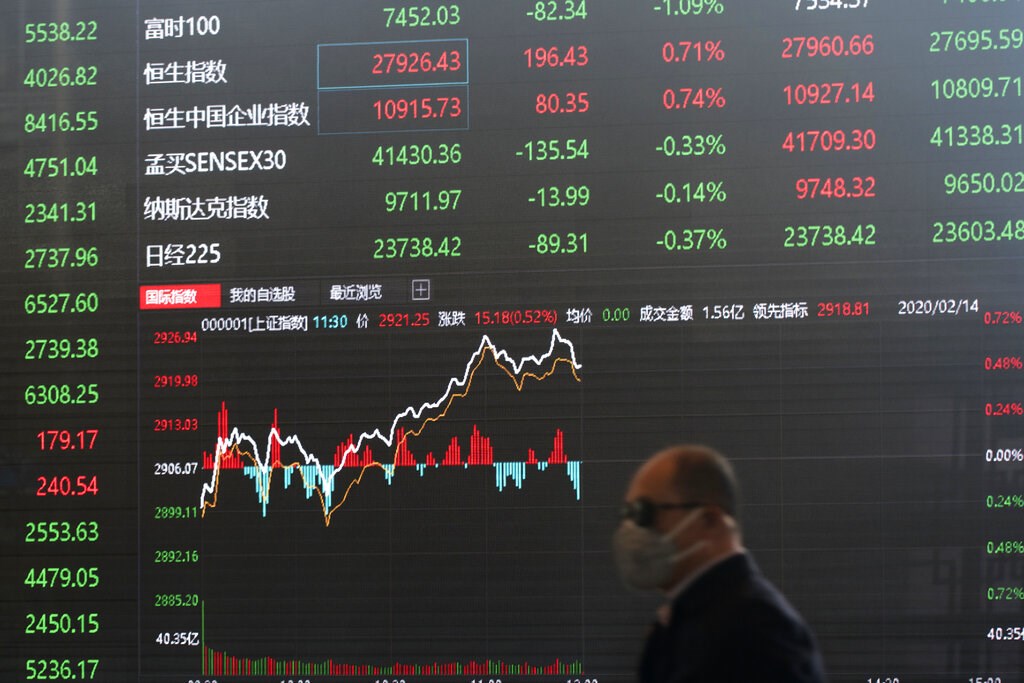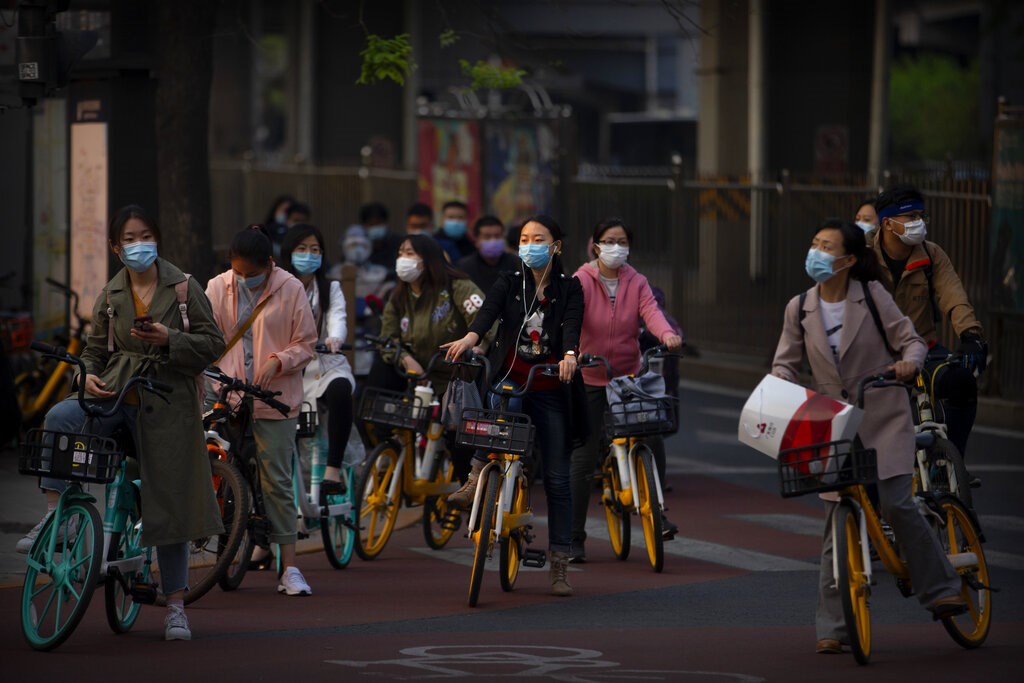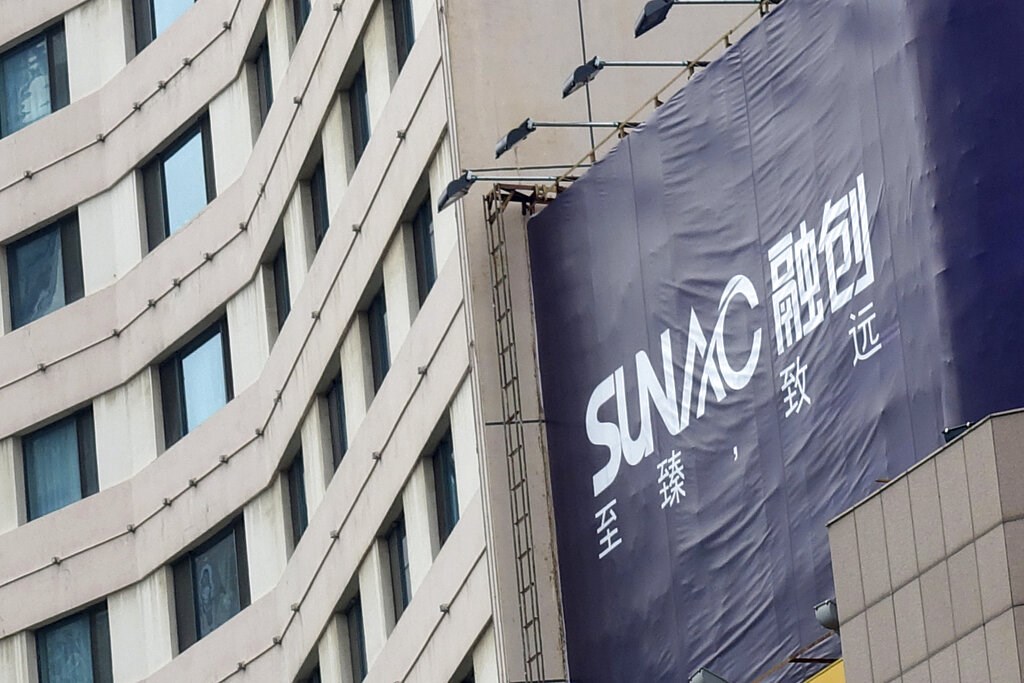
Following the struggles of China Evergrade Group (03333) in 2021, the spotlight has been on Chinese real estate developers’ debt and repayment capabilities, and many have come up short. Sunac was the latest, as, after the expiry of a 30-day grace period, it expressed the inability to make interest payments.
As of the end of last month, roughly 60% of offshore bonds issued by Chinese property developers trade in distressed pricing (indicated as ‘below 30 cents’ in the graph), which implies the market has factored in an event that the company is near to or currently going through bankruptcy.
Why Aren’t Supportive Measures Working (Just Yet)?
Bond managers believe there could be a more decisive policy response, to stabilize the home sales and housing market, including lowering the national mortgage rate for first-time homebuyers and loosening policy. However, the lockdown has interrupted the transmission of supportive policies.
Alan Siow, portfolio manager of the All China Bond fund at Ninety One, says: “The reason why we haven't seen a stronger impact from this [round of] easing is because of the lockdowns. So while the lockdowns are in place, I think it's very hard for the market to respond to this positive relaxation.”
Siow believes one of the prerequisites to let things stabilize is the normalization of sales of homes. “If contract sales don't go back to normal, and by that, I don't mean that they need to grow very fast or go back to 2018 or 2019 levels, just the increased sale of homes, I can see that onshore financing is going to remain tight.”
For Andy Suen, portfolio manager and head of Asia ex-Japan credit research at PineBridge Investments, the issues run beyond transmission. In Suen’s view, the magnitude of the policy measures and easing is not as strong as in previous cycles and the effect has also been offset by the COVID lockdown and dampened buyer sentiment due to default events in the sector. “We think policy efforts will need to step up, given the sluggish physical property market as well as an overall slowdown in the broader Chinese economy. In the near term, we expect only some marginal sales recovery due to moderation of lockdown measures and policy easing and more meaningful recovery is not likely before the fourth quarter of 2022,” he says.
Two Key Macro Factors
The portfolio managers suggest that there are two variables to watch.
First, supportive policies will play a part in the recovery, but will take time to take effect. Second, helped by accommodative policies, a rebound in home sales will be needed for a recovery to take hold.
Sheldon Chan, portfolio manager of Asia credit bond strategy at T. Rowe Price is mindful of the uneven path that will lead to a bond market restoration. “What I think is fairly clear is that any impact from easing isn’t going to be uniform.” He suggests that a lack of normalized onshore funding access would also keep offshore lenders at bay.
There is a Need for Caution
When deciding if and how to play the bruised Chinese property sector, most managers are taking a cautious approach. Owning quality names has been a common strategy, even though cheap bond deals now take the majority of the market.
Pinebridge’s Suen believes the biggest wave of defaults is possibly behind us and expects developers will survive to return double-digit gains over the next 12-18 months. His strategy will be “only focusing on a few of the highest quality names in the sector,” in order to seek a higher margin of safety.
T. Rowe Price’s Chan echoes the view and thinks: “I would say it’s hard to make a case right now to go all in on every single issuer, because I think some of the ones that hit distress will likely stay that way.” With developers having to go through a restructuring process, he trusts that the visibility of their restructuring process may be clouded. “It may take longer for us to see a resolution of those situations,” he adds.
He adds: “Stressed developers are also underperforming in terms of their operational data, with pre-sales significantly worse than they were last year, and they are worse off than some better-performing peers.” He prioritizes issuers with an operational performance at least on par with the broader industry trend, or those demonstrating access to financing in the onshore market.
Chan finds the upsides of privately-owned developers present as more attractive than their state-owned homebuilders, as the latter has shown a greater degree of resiliency throughout the sector’s debt trouble.
AXA Investment Managers likes issuers with a state-owned background, which have sustained access to funding throughout the crisis. Outside of the SOE space, quality private developers without imminent refinancing risk are also on her radar. The firm’s portfolio manager, Christy Lee’s preference goes to issuers that will not have maturity concerns until 2023 or even the latter part of next year.
For Ninety One, over the course of the debt issues, the government bond-heavy portfolio has not been adding or reducing exposure to the sector. The price action occurred so quickly that Siow feels that the levels at any point in time did not reflect the true recovery for the sector. Siow has been adding more investment grade credit because the segment “has repriced quite a lot because of the fears on China’s growth.” He adds: “Now we could increase the exposure of the Fund to high yield in due course if we think that the recovery in China is on the right track.”
Smaller Influence of China Bonds
Think back to the time when China's high yield property bonds took up 40% of weight in the Asian high yield index. Now, that proportion looks far less distorted, as portfolios have larger diversification. In the Asia credit market, China is roughly 22% and China high yield property bonds take up an even smaller fraction, only 1.4% of the total opportunity set.
While T. Rowe Price’s Chan expects near-term volatility within the sector to continue to persist, that should be less impactful to return to Asia credit more broadly.
Also, longer term, the expectation Chan has is that the real estate sector will switch to a more utilitarian model that might be dominated by more state-owned developers. Private sector companies that we see having a much larger function in the market right now will play a smaller role.
Broadly speaking, the influence of China issuers is downsizing, which should support a greater degree of diversification in the Asia credit market.











.png)



.jpg)





